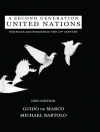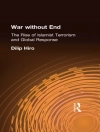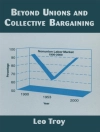This electronic version has been made available under a Creative Commons (BY-NC-ND) open access license. Mobility and security are key themes for students of international politics in a globalised world. This book brings together research on the political regulation of movement — its material enablers and constraints. It explores aspects of critical security studies and political geography in order to bridge the gap between disciplines that study global modernity, its politics and practices. The contributions to this book cover a broad range of topics that are bound together by their focus on both the politics and the material underpinnings of movement. The authors engage diverse themes such as internet infrastructure, the circulation of data, discourses of borders and bordering, bureaucracy, and citizenship, thereby identifying common themes of security and mobility today.
Содержание
1. Introduction: Security/Mobility and the politics of movement — Marie Beauchamps, Marijn Hoijtink, Matthias Leese, Bruno Magalhães, Sharon Weinblum, and Stef Wittendorp
Prologue: Movement then and now 2. Connectivity as problem: security, mobility, liberals, and Christians — Luis Lobo-Guerrero and Friederike Kuntz
Part I: Things on the move 3. The power of cyberspace centralisation: analysing the example of data territorialisation — Andreas Baur-Ahrens 4. Commercialised occupation skills: Israeli security experience as an international brand — Erella Grassiani 5. Mobility, circulation and homeomorphism: data becoming risk information — Nathaniel O’Grady
Part II: People on the move 6. ‘Illegals’ in the Law School of Athens: public presence, discourse, and migrants as threat — Giannis Gkolfinopoulos 7. The management of African asylum seekers and the imaginary of the border in Israel — Sharon Weinblum 8. Reinventing political order? A discourse view on the European Community and the abolition of border controls in the second half of the 1980s — Stef Wittendorp
Part III: Circumscribing movement 9. Gender (in)securities: surveillance and transgender bodies in a post-9/11 era of neoliberalism — Christine Quinan 10. One thing left on the checklist: ontological coordination and the assessment of consistency in asylum requests — Bruno Magalhães 11. Modelling the self, creating the other: French denaturalisation law on the brink of World War II — Marie Beauchamps
Epilogue 12. Unpacking the new mobilities paradigm: lessons for critical security studies? — Emmanuel-Pierre Guittet Index
Об авторе
Matthias Leese is a Senior Researcher at the Center for Security Studies (CSS), ETH Zurich Stef Wittendorp works in the Department of International Relations and International Organisation, University of Groningen and is Researcher at the Institute of Security and Global Affairs, Leiden University












